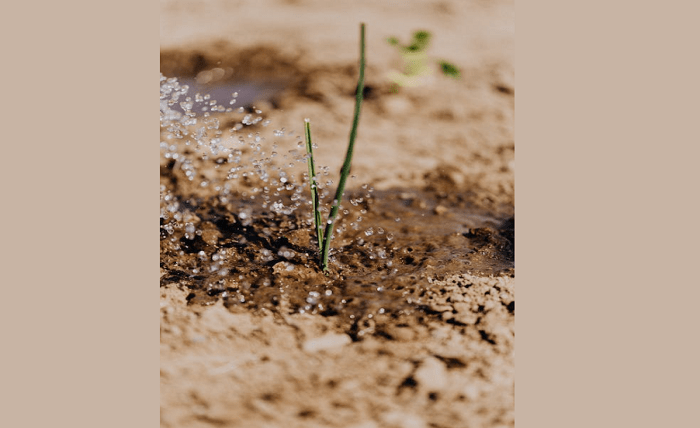In the ever-evolving realm of agriculture, innovation is the cornerstone of progress. The marriage between technology and farming practices has ushered in a new era of efficiency and sustainability, particularly in irrigation management. In this blog post, we delve into the transformative role of technology in modern irrigation practices, exploring its advancements, benefits, and the exciting opportunities it presents for entrepreneurs eyeing irrigation franchises.
Precision Farming: The Power of Smart Irrigation
Precision is paramount in agriculture, and technology has empowered farmers to achieve it like never before. Smart irrigation systems, leveraging many technological advancements, allow for precise control over water delivery to crops.
By integrating sensors, weather forecasts, and data analytics, these systems monitor soil moisture levels, weather patterns, and crop water requirements in real time. This data-driven approach enables farmers to make informed decisions, ensuring optimal irrigation while conserving water resources and maximizing yields.
Drip Irrigation: Maximizing Efficiency
A significant stride in irrigation technology comes from drip irrigation systems. Unlike traditional methods that often result in water wastage through evaporation and runoff, drip irrigation delivers water directly to the roots of plants, minimizing waste and maximizing efficiency.
With the addition of automation features, these systems can be remotely monitored and controlled, offering farmers convenience and precision in irrigation management.
The Power of IoT and Cloud-Based Platforms
Integrating Internet of Things (IoT) devices and cloud-based platforms has revolutionized irrigation management on a larger scale. IoT-enabled sensors placed strategically throughout the field collect real-time data on soil moisture, temperature, and other environmental variables.
This data is then transmitted to cloud-based platforms, where sophisticated algorithms analyze it to generate actionable insights and recommendations. By leveraging this technology, farmers can fine-tune their irrigation schedules, detect issues promptly, and predict crop water requirements with unprecedented accuracy.
Benefits Beyond the Field
The benefits of adopting technology in irrigation management extend far beyond the field. By optimizing water usage, farmers reduce their reliance on groundwater reserves and mitigate the risk of water scarcity, particularly in regions prone to drought.
Moreover, technology-driven farming practices contribute to resource efficiency and cost savings, as precise irrigation minimizes using fertilizers and pesticides. This benefits the environment by reducing pollution and preserves soil health for future generations.
Here are five more examples of benefits beyond the field:
Energy Conservation
Modern irrigation technologies, such as drip irrigation and automated systems, require less energy than traditional methods like flood irrigation or manual watering. Farmers can lower their carbon footprint by reducing energy consumption and contributing to conservation efforts.
Improved Crop Quality
Precise irrigation management ensures crops receive the right amount of water at the right time, promoting healthier growth and improving crop quality. Consistent moisture levels help prevent issues like wilting and nutrient deficiencies, resulting in higher yields of better-quality produce.
Enhanced Water Quality
Technology-driven irrigation helps maintain water quality in nearby water bodies such as rivers, lakes, and aquifers by minimizing runoff and leaching of fertilizers and pesticides. This benefits aquatic ecosystems and safeguards the health of communities that rely on these sources.
Climate Resilience
With climate change posing increasingly unpredictable weather patterns, technology-enabled irrigation systems offer farmers greater resilience against droughts, floods, and extreme temperatures. By adapting irrigation schedules in real-time based on weather forecasts and soil moisture data, farmers can mitigate the impact of climate-related challenges on their crops.
Economic Stability
Investing in advanced irrigation technologies may initially require a financial outlay, but the long-term benefits can improve farmers’ economic stability. Higher yields, reduced input costs, and increased efficiency translate into higher profits and greater resilience against market fluctuations, ultimately supporting rural livelihoods and agricultural sustainability.
Irrigation Franchise Opportunities
For entrepreneurs seeking to capitalize on the growing demand for irrigation solutions, sprinkler franchise opportunities offer a promising avenue for growth.
As the adoption of smart irrigation systems continues to rise, the need for knowledgeable and reliable service providers grows in tandem. By partnering with established brands offering comprehensive training, support, and access to cutting-edge technology, franchisees can tap into this rapidly expanding market while positively impacting agriculture and the environment.
Conclusion: Pioneering the Future of Agriculture
Technology has emerged as an indispensable tool in modern irrigation management, reshaping the farming landscape and paving the way for a more sustainable future. The advancements in agricultural technology are revolutionizing how farmers cultivate crops and manage water resources. By embracing the many technological innovations out there and harnessing the power of technology, you can ensure a bountiful harvest for your business.



